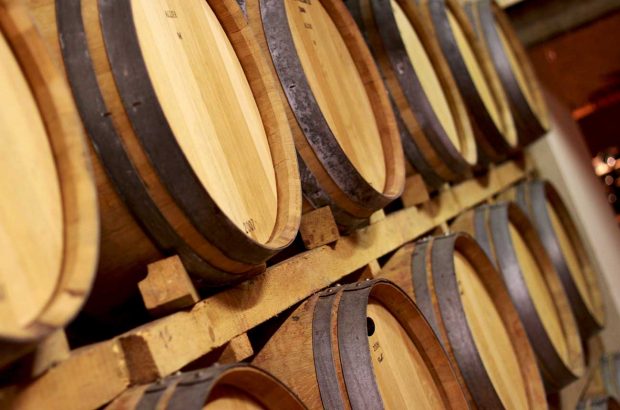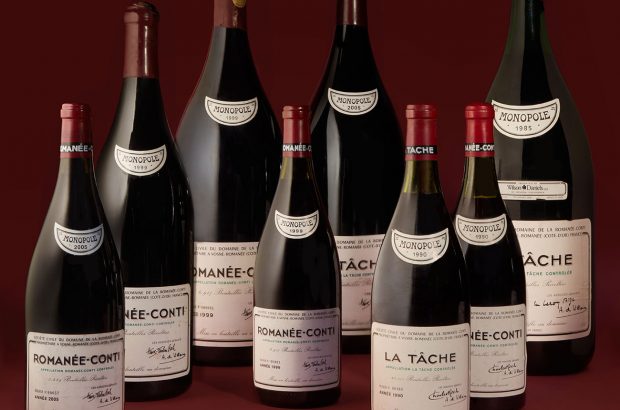Following the death of his estate manager father, Nicolas Potel decided to become a négociant in Burgundy wine. He tells STEPHEN BROOK how his business has become so successful.
For the young Nicolas Potel, it must have once seemed as if the future had no limits. His father, Gérard Potel, was the revered manager of the celebrated Pousse d’Or estate in Volnay, and was also mentor to an entire generation of Burgundian winemakers. Nicolas too was gifted and ambitious, and travelled widely to improve his understanding of Burgundy wine. In Australia he worked at Moss Wood, Leeuwin and Mount Mary, and in California with the Pinot Noir specialist Tom Dehlinger in Russian River Valley. Nor did he neglect his native region, spending a year working with Christophe Roumier in Chambolle-Musigny and at Matrot in Meursault.
Then, in the mid-1990s, that unblemished horizon clouded over. The estate for which his father had worked for decades was up for sale, and Gérard Potel’s own future looked uncertain. On the day in 1997 that the deeds authorising the sale were signed, Gérard died. Potel lost a father, a home, and the most likely avenue for his burgeoning career as a winemaker. Now in his late 20s, Potel pondered what to do next. He knew how to make wine, but had no vineyards. He had to become a négociant. To succeed he needed to persuade growers to part with parcels of first-rate grapes or wines; he needed the cash to pay for the quality he sought; he needed to win the confidence of growers that he would produce wines worthy of their appellations.’My father’s reputation helped me greatly,’ admits Potel. ‘There was a lot of goodwill towards him and me in the region, and after he died and I set up on my own, many growers were happy to supply me. After all, many of them were personal friends.’
He rented space in a drab semi-industrial quarter in Nuits-St-Georges. As his business grew, so did the premises. He expanded into – and soon filled to overflowing – a former freight depot next to the station, and rented fine vaulted cellars in the heart of the little town. The young business proved very successful, for the simple reason that the wines were very good. From the 1997 vintage he released wines that ranged from lowly Bourgogne Rouge to grand cru Echézeaux. Soon the wines were being widely distributed and sold, and his reputation grew.Like his father, Potel is an instinctive winemaker, distrustful of formulae. ‘I make my wines according to taste. I detest formal analyses. Of course we have to check for levels of sulphur and volatile acidity in the wines, but everything else is determined by how the wine tastes. My instinct is to leave the wine alone. I don’t add yeasts, I don’t add enzymes, I don’t add acidity.’ He has a genuine horror of bio-technology. ‘I don’t want a moratorium on research into genetically modified yeasts and enzymes – I want such research stopped altogether. Those who are developing such things menace those of us who want a more pure approach to viticulture and winemaking. I don’t want you to think I’m against progress, I’m just against stupidity.’
He tries to work as closely as possible with the 120 growers he buys from. ‘I usually buy grapes rather than finished wines, and I try to buy only from old vineyards. I purchase regularly from the same growers, who now number 120, even in the less good years.’ He tastes constantly in the vineyard before the harvest. Why should they sell to him rather than to any other négociant? ‘They sell to me because we have good personal relations and because I pay well above the market price. In 2000 I paid Christian Gouges in Nuits-St-Georges the same price as in 1999, when quality had been higher. I’m not really in competition with the major négociants as I am buying much smaller quantities.’His favourite period of the year is immediately after the harvest. ‘That’s when I try to visit the domaines and taste the wines. It’s wonderful to taste them fresh from the press.’When Potel makes the wine himself, he maintains maximum flexibility. ‘In general I don’t use more than 20% new oak, except for some grands crus. In 1997 I didn’t use any new oak at all. All my wines, even the Bourgogne, are aged for the same length of time. I rack according to the phases of the moon, as traditional growers used to do, and I’ll filter the wine if I think it needs it. I’m not going to be bullied by the fashion for completely unfiltered wines if it means releasing a dirty wine.’
In 2000 Potel produced 117 different wines, so it’s impossible to taste his entire range. But having tasted a selection of 1997s last year, and 1999s this year, it is possible to reach some conclusions about his style. Potel’s wines offer purity of fruit rather than density and extraction. They also have the merit of tasting true to their appellations. His Pommards do not taste the same as his Volnays, and his Savigny and Chambolle-Musigny are exquisitely elegant and fruity. A 1999 Romanée St-Vivant was gorgeous: an explosion of raspberry on the nose, and a concentrated, rich structure that never overwhelmed the intensity of fruit. ‘I like a wine to have good body but I don’t go for heavy extraction. I want purity. I don’t try to match my wines to what I think the market wants. First I make my wine, then I try to sell it. That’s what my father taught me. I won’t sell a wine I don’t like.’
One would expect this successful young winemaker to expand this business. But he is going in the opposite direction. ‘I’m now releasing around 300,000 bottles per year. I have a small but good team around me – if I were to expand I’d have less personal control. So in future I will reduce the volume by about a third. It’s not hard to do, as I know which wines I like best. If I’m going to have complete control, then I need to produce less, not more.’
To compensate for the lack of volume in years ahead, he has formed a partnership with a former wine broker in Beaujolais. ‘He knows all the best terroirs in Beaujolais, and we supply tanks and barrels to the growers we work with, and they vinify the wines in the Burgundian manner. No carbonic maceration! We only buy from old vineyards, which are very low-yielding, and we age them for 14–16 months in 20% new oak. I know this is completely contrary to the perception of Beaujolais as a quaffing wine, but I don’t care.’ Potel is supremely self-confident, but I would be tempted to trust his instincts. His wines are exemplary and sensibly priced. If he can seem arrogant, he can also demonstrate that everything he does is aimed at improving the quality and typicity of his wines. He has come a long way in just four years, and the journey is only just beginning.
https://www.decanter.com/wine/wine-regions/burgundy-wine/
Stephen Brook is a contributing editor to Decanter.





